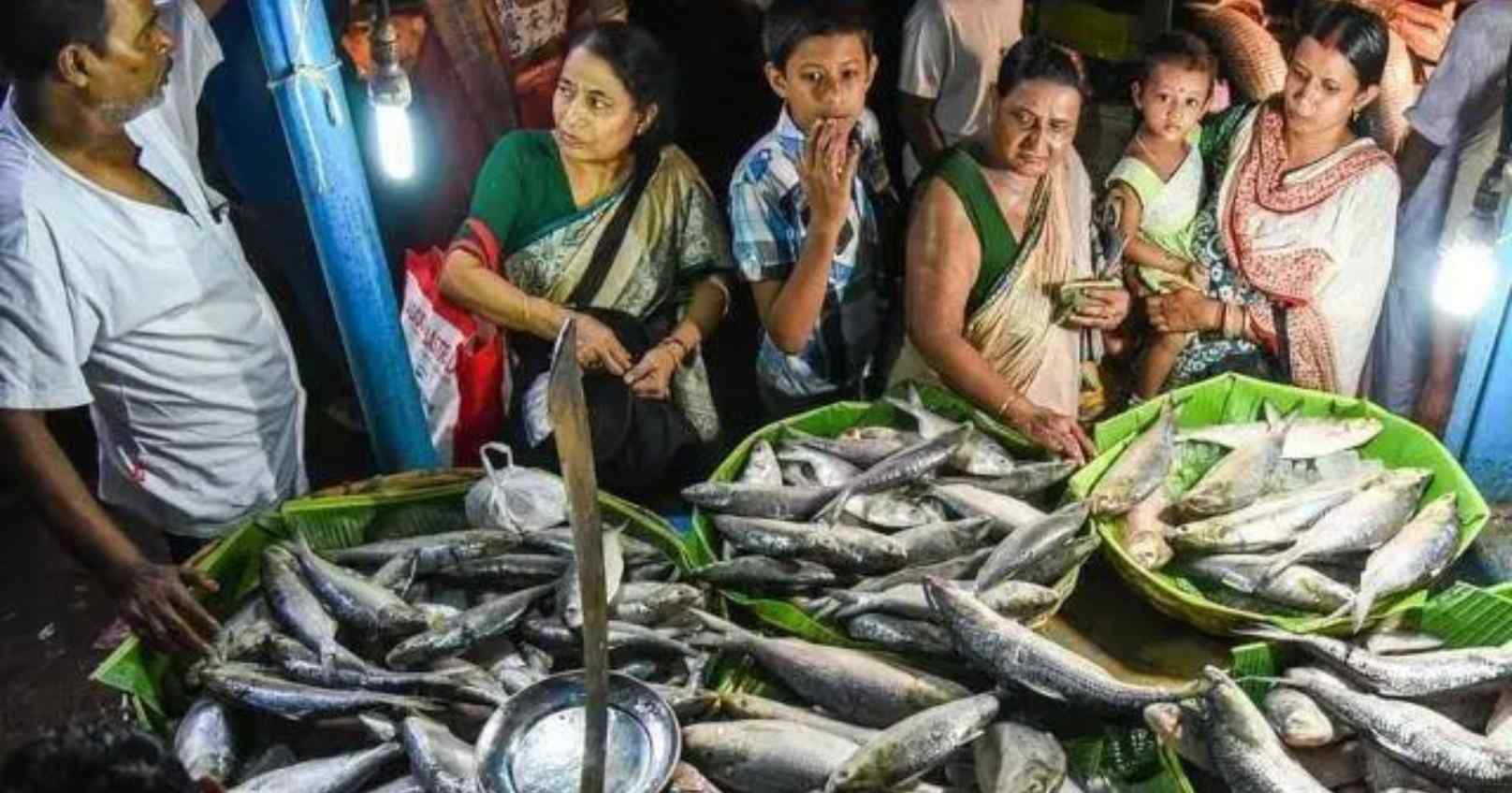As Durga Puja preparations begin, the aromatic scent of steamed hilsa in mustard from Bengali kitchens is about to get more expensive. Bangladesh’s new caretaker government has implemented a ban on exporting hilsa, causing a shortage of the prized fish in Indian markets. This ban, which comes just before the festival season, has triggered a price hike, though some Padma hilsa may still find its way to India, albeit at higher costs.
Bangladesh Halts Ilish Exports Ahead of Durga Puja
Right before Durga Puja, when the demand for hilsa peaks among Bengalis, Bangladesh’s interim government has put a stop to the export of the famous Padma hilsa. This ban is a significant shift from the tradition of sending large consignments of ilish to India during the festive season, a gesture that was supported by former Prime Minister Sheikh Hasina. Now, with the ban in place, the prices of hilsa in India have soared, affecting markets in West Bengal and beyond.
Government Justifies Ban to Ensure Local Supply
Farida Akhter, an advisor to Bangladesh's Ministry of Fisheries and Livestock, confirmed that the export ban aims to ensure sufficient hilsa supply for domestic consumers. The decision reflects concerns over local availability, as hilsa prices have also surged within Bangladesh. Akhter stated that Bangladesh’s priority is to meet its own citizens' needs, making it necessary to halt exports during this critical period.
Ilish from Bangladesh Finds New Routes to India
Despite the official ban, reports suggest that hilsa is still making its way into Indian markets through alternative routes, particularly via Myanmar. Traders in Delhi's fish markets have noted that Bangladeshi hilsa continues to be available, but at inflated prices. The fish, particularly prized during Durga Puja, is now selling for significantly higher rates due to the disrupted supply chain.
The Unique Appeal of Padma Hilsa
Known as the "king of fish," the hilsa from the Padma River in Bangladesh holds a special place in Bengali cuisine. Its distinct taste and texture make it a staple during festive celebrations, particularly Durga Puja. The specific water conditions of the Padma River contribute to the fish's rich flavor, setting it apart from other hilsa varieties found in India. Despite the export ban, the demand for Padma hilsa remains high in Indian markets, particularly in cities like Kolkata, Delhi, and Mumbai.
Hilsa Diplomacy Takes a Hit
For years, the export of hilsa from Bangladesh to India has served as a diplomatic gesture, strengthening ties between the two countries. Former Prime Minister Sheikh Hasina frequently used "hilsa diplomacy" to foster goodwill, gifting the prized fish to Indian leaders. This practice, which symbolized friendship and cooperation, now faces an uncertain future with the recent ban. While previous exceptions were made for India, the current government in Bangladesh has chosen to prioritize local supply, leading to a halt in exports just before one of the biggest festivals in the Bengali calendar.







